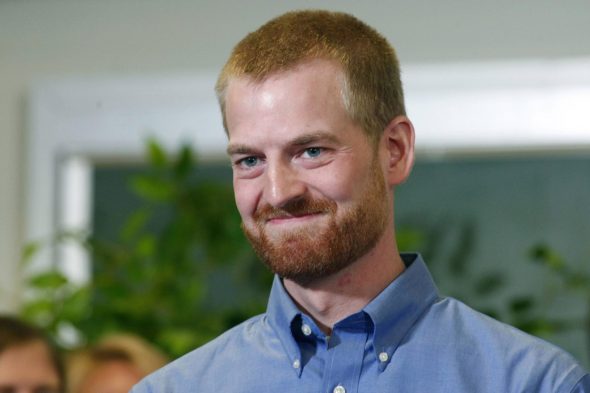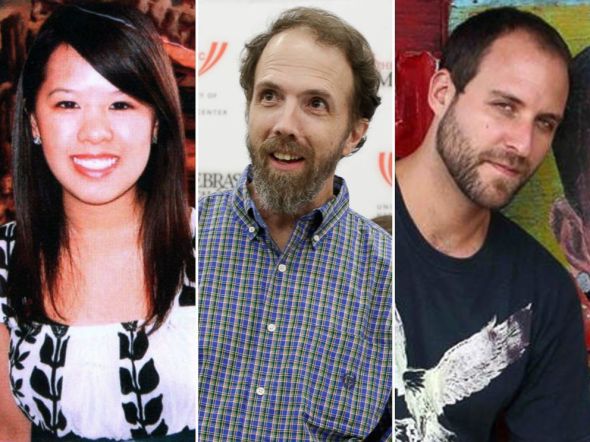Why Blood Transfusions From Ebola Survivor Dr. Kent Brantly Could Help Patients
Daily News Article — Posted on October 16, 2014

Dr. Kent Brantly
(by Sydney Lupkin, ABC News) – Ebola survivor Dr. Kent Brantly has donated the plasma in his blood to three patients in the last month, echoing what one of his former patients did for him before he left Liberia.
Brantly was caring for sick Ebola patients with the aid group Samaritan’s Purse in Monrovia, Liberia, when he became the first American diagnosed with Ebola in late July. His condition was worsening before he was flown to the United States in an air ambulance, but before he left, one of his former patients, a 14-year-old Ebola survivor, gave him “a unit of blood” for a transfusion, according to Samaritan’s Purse.
Since his recovery and release from Emory University Hospital on Aug. 21, Brantly has donated his plasma to Samaritan’s Purse colleague Dr. Rick Sacra and freelance cameraman [for NBC] Ashoka Mukpo, both of whom were receiving treatment for Ebola at Nebraska Medical Center. They received his plasma transfusions on or around Sept. 11 and Oct. 8, respectively — about 27 days apart. The latest American Ebola patient, Dallas nurse Nina Pham, who contracted the virus while treating Thomas Eric Duncan, received a blood donation of some kind from Brantly, according to health officials.

Ebola patients Nina Pham, a Dallas nurse, missionary Dr. Rick Sacra and NBC Cameraman Ashoka Mukpo.
Plasma is a component of blood that contains virus-fighting proteins called antibodies. When someone donates plasma, their blood is drawn into a machine that separates out the plasma and returns the red blood cells to the donor.
“There is a strong theoretical possibility that this could help, particularly if this is given early,” said Dr. William Schaffner, chair of preventive medicine at Vanderbilt University Medical Center in Nashville, Tennessee.
Here’s how it works: When confronted with a virus, the immune system creates antibodies to specifically target that virus, kill it and keep it from coming back, he said. Once a person has antibodies, they stay in their blood for life. If the Ebola antibodies found in an Ebola survivor’s blood can be imported into struggling Ebola patient’s body, those antibodies can theoretically help the patient’s immune system fight off the deadly virus.
“What those antibodies do is bind to the virus,” Schaffner said. “They find the virus and bind to it and prevent it from multiplying further.”
Schaffner said even though the sick person’s body is trying to make antibodies, an infection can be so overwhelming that the sick person’s immune system might not be able to keep up with the invading virus. As a result, the sooner someone gets a plasma transfusion, the more likely it is to help that person recover, he said.
Though blood type O is considered the universal donor for whole blood, type AB is the universal donor for plasma, according to the Red Cross. According to Texas Health Presbyterian Hospital, where Duncan was being treated, Dr. Brantly offered his blood to Mr. Duncan but their blood types were not compatible. Duncan did not receive any kind of blood transfusion because his blood type was not compatible with any of the donors.
In September, the World Health Organization said blood therapies should be “considered as a matter of priority.” Since then, the number of people who have been infected with Ebola since March has doubled to 8,399, and 4,033 of them have died, according to the latest WHO figures.
“There is a real opportunity that a blood-derived product can be used now and this can be very effective in terms of treating patients,” said Dr. Marie Paule Kieny, WHO’s assistant director general, said on Sept. 5.
Reprinted here for educational purposes only. May not be reproduced on other websites without permission from ABCNews.
Questions
1. a) What is plasma?
b) How often can a person donate plasma?
2. Explain how plasma can help fight a virus and possibly fight the Ebola virus.
3. a) Who is Kent Brantly?
b) From whom did he receive plasma?
4. Who did Kent Brantly donate plasma to?
5. a) What other treatment did Dr. Brantly receive?
b) What actually cured Dr. Brantly?
6. Why didn’t Dr. Brantly donate blood to Liberian national Thomas Duncan?
7. What recommendation did the WHO make in September regarding blood therapies?
8. What hope does this article give you that even people in Liberia can be saved from Ebola?
Background
From the UK Independent:
Dr Brantly, who was treating Ebola patients in Liberia when he contracted the disease, was flown back to the US for treatment, where he recovered fully.
Before being flown out of Liberia, Dr Brantly was given a dose of the experimental drug Zmapp, and also received “a unit of blood from a 14-year-old boy who had survived Ebola under his care,” according to Samaritan’s Purse.
Since his recovery, Dr Brantly has donated his blood to missionary Rick Sacra, who has recovered along with a dose of Zmapp; NBC camaraman Ashoka Mukpo, who is “on the mend” according to NBC, and now to Ms Pham.
Why have these victims been treated with Dr Brantly’s blood?
The answer is in Dr Brantly’s blood plasma. Despite doctors not being able to determine whether it was the Zmapp that helped Dr Brantly to recover, the high levels of care he received, the transfusion he was given by the 14-year-old survivor, or a mixture of all three, antibodies in the blood of a survivor could help other patients to fight off the virus.
Why do patients receive a survivor’s plasma?
Blood plasma is the clear part of the blood, and it contains the antibodies needed to fight off the Ebola infection. These antibodies have been created by the Ebola survivor’s immune system to specifically fight off the Ebola virus.
The plasma can be removed from whole donated blood, or a donor’s blood can be filtered through a machine to extract just the plasma.
How does it work?
Once a patient received the antibodies from an Ebola survivor, those antibodies will stay in their system for life, and theoretically can help the patient to fight off the Ebola virus, especially if given to a patient early on, according to Dr William Schaffner, chair of preventive medicine at Vanderbilt University Medical Centre in Tennessee.
“What those antibodies do is bind the virus,” he told ABC news. “They find the virus and bind it and prevent it from multiplying further.”
How many times can someone donate their plasma?
It is believed that antibodies can be replaced in around two days, meaning people are able to donate twice a week, according to Dr. James Crowe, an immunologist and director of the Vanderbilt Vaccine Center in Nashville. But the American Red Cross recommends a person can donate their plasma up to 13 times a year, about every 28 days.
Can it be used on all Ebola sufferers?
It depends on blood types; Dr Brantly offered his blood to Mr Duncan but their blood types were not compatible, meaning he was not able to receive the transfusion.
